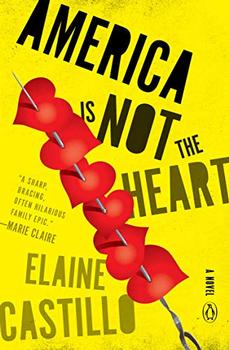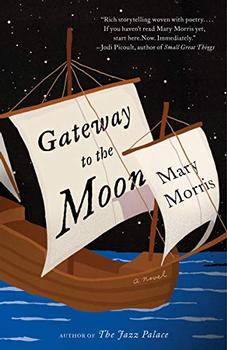Summary | Excerpt | Reading Guide | Reviews | Beyond the book | Read-Alikes | Genres & Themes | Author Bio

The immigrant experience has always been ripe territory for literature, but one must proceed with caution. It is easy for writers to get overly sentimental when nostalgia takes hold, and clichés often dominate romanticized narratives. Fortunately, the immensely talented Roshi Fernando avoids these traps in her spectacular debut, Homesick, which chronicles the Sri Lankan immigrant experience in England.
Although this book is really a collection of tightly interconnected short stories, it wouldn't be too much of a stretch to call it a novel. And while each chapter or story stands on its own, it does help the narrative to read the book from beginning to end without jumps. The opening story, Homesick, sets the stage by introducing the principal characters who reappear as the book progresses. Primary among these is Preethi, who, as the story opens, is a teenager getting her first taste of rebellion at a family party hosted by her father. With many characters moving in and out, this first story is a tad confusing and awkward in its execution, but persistence pays. Fernando quickly finds her groove, and the rest of the book is close to flawless.
Fernando does a fantastic job of capturing the isolation and displacement that are an essential part of the immigrant experience. Her strength lies in her ability to portray keen insights with the slightest touch. She doesn't need any grand drama to bring out vulnerabilities in her characters. Instead, small details pack a strong punch and drive home her message just as effectively. In one of many superbly eloquent chapters, a Sri Lankan nanny gets lost while on the way to dropping Preethi off at school. The houses and the streets all look similar, not distinct and unique as they might have in Sri Lanka. The fear gets compounded when they chance upon a white woman, and the nanny doesn't know how to ask for help. Instead she pushes her little charge, Preethi, forward hoping the young one will make the case for the two of them. Vignettes like these bring to mind another great chronicler of the immigrant narrative, Jhumpa Lahiri. Just like Lahiri, Fernando uses her keen observation skills to craft touching and powerful stories.
My favorite sketch in Homesick is "Sophocles' Chorus," in which Preethi goes through the blush of first love. The giddiness, the letdown, the disillusionment and the eventual embrace of reality are all so brilliantly executed by Fernando that it is hard to believe this is her debut novel.
Where Homesick falters is in its story of a young Muslim immigrant who embraces less than desirable outcomes as a way out of an oppressive childhood. His eventual path back to normalcy involves one too many neat coincidences, and the story seems a tad contrived. Toward the end of the book, Preethi visits Sri Lanka and somehow manages to get involved in the country's civil war. This part too feels out of place; it's as if Fernando felt the compulsion to address the weighty theme in some way and couldn't quite manage a better fit. She is much better when she uses a light touch in showing cultural mores that are completely Sri Lankan. Descriptions of an immigrant man's love for his cricket team and glimpses of a Sri Lankan wedding in England say much more about the country than more dense themes do.
In the end, Homesick emerges as a moving and powerful novel about Sri Lankans in England. In showcasing her characters' everyday anxieties and triumphs, Fernando effectively portrays a slice of humanity we can all - immigrants or not - identify with readily. It is this empathy that Fernando manages to elicit from her readers and that makes Homesick such a compelling, triumphant debut.
![]() This review was originally published in The BookBrowse Review in July 2012, and has been updated for the
July 2013 edition.
Click here to go to this issue.
This review was originally published in The BookBrowse Review in July 2012, and has been updated for the
July 2013 edition.
Click here to go to this issue.

If you liked Homesick, try these:

by Elaine Castillo
Published 2019
With exuberance, grit, and sly tenderness, here is a family saga; an origin story; a romance; a narrative of two nations and the people who leave one home to grasp at another.

by Mary Morris
Published 2019
From award-winning novelist Mary Morris comes the remarkable story of a remote New Mexican town coming to grips with a dark history it never imagined.
Your guide toexceptional books
BookBrowse seeks out and recommends the best in contemporary fiction and nonfiction—books that not only engage and entertain but also deepen our understanding of ourselves and the world around us.